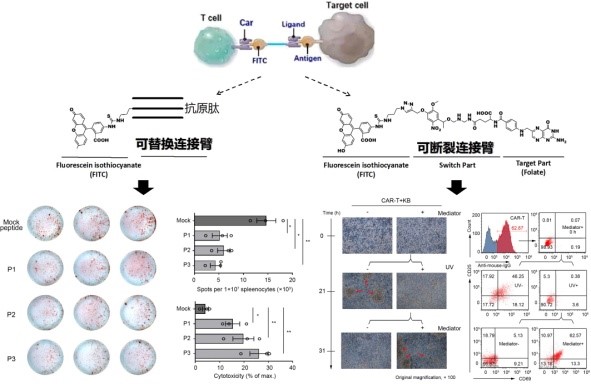(Reporter: Wang Jing, Correspondent: Zhang Bo, Practice Reporter: Xie Yujia) Professor Zhang Xuan’s team from Peking Union Medical College Hospital, in cooperation with School of Pharmaceutical Sciences, Peking University, innovatively developed an autoantigen peptide-based, controllable, universal Chimeric Antigen Receptor T cell (CAR-T) approach as a new technique for the potential therapy for autoimmune diseases. Chemicobiological interdisciplinary method was further applied in the research. For the first time in the world, a photoswitchable molecule was applied in the CAR-T technique to achieve accurate regulation of the CAR-T cells to reduce the adverse reaction of Cytokine Release Syndrome. Recently, the series of research results were published in top rheumatology journals, including Annals of the Rheumatic Diseases and Cell Chemical Biology, which is one of the Cell series issues.
Guided by clinical scientific problems, the research team innovatively developed the extended application of CAR-T in systemic autoimmune diseases represented by rheumatoid arthritis. The team also combined interdisciplinary methods of immunology, chemistry and biology to establish a controllable, universal CAR-T approach platform, thereby offered a new technique for more secure and efficient application of CAR-T. This technique provides a new strategy for the accurate therapy of autoimmune diseases and tumors, and has a broad prospect for clinical application.

Universal CAR-T mediated by a linker arm.
Left: Specific killing of antibody-secreting memory B cells through replaceable antigen peptide.
Right: Further enhancing of the controllability of CAR-T cells by the cleavable part of the linker arm molecule.
Picture: Medical Research Center
Translator: Jiang Nan
Editor: Xia Peng
